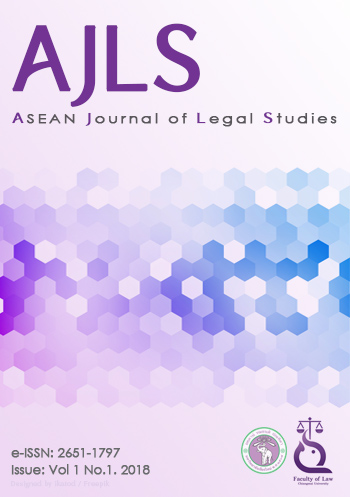The Asian legal research is increasingly important to the emerging of Asian development century. We all have experienced the significant development of Asian countries couple with vital reforms on laws. The reforms are purported to keep up with an ever integrating Asian regions and changing technology and society. The reforms contributed to potential benefits but create a legal issues requiring understanding and clarification in Asian. This Asian Journal of Legal Studies aims to enchant the readers with the trendy legal changes and issues in Asia. The first issue of the journal posits the various topics of research. Haniff Ahamat and Nurul Hanan Abdull Manaf, in the first paper, presents important view on the regulation and non-tariff barriers with the ASEAN Trade Repository (ATR). The points out that the soft approach by the ASEAN Trade Repository can address issue of the non-tariff barriers but the successful use of the ASEAN Trade Repository also depends on the National Trade Repositories (NTRs). Tran Viet Dung in the second paper focuses on how to achieve the mutual recognition on the Trade in Services agreements in ASEAN economic community. The paper explores the current commitments among ASEAN countries with regards to movement of natural persons in order to facilitate the trade in services in ASEAN. Salawati Mat Basir and Saidatul Nadia Abd Aziz in the fourth paper pay attention to the different stages of development in ASEAN member that may lead to the challenges for ASEAN integration. The paper discusses on the gaps on income, infrastructures, trade and institution. The paper show that there should be a prioritisation on community-building process of ASEAN. Alexander Shytov in the fifth paper debates on ideas of Confucianism, Buddhist and Christian with the Juvenile Justice System in Thailand. The paper points out that the Confucius idea is a vital principle of juvenile justice system in Thailand. Tossapon Tassanakunlapan in the last paper present the very interesting laws relating to protection of personal data in cyberspace: the EU-US E-Market regime. The paper shows that the reforms on the laws relating to protection of personal data in EU and US regime can be an universal example for international regimes and for Asia countries.
On behalf of the editorial team, I hope the readers can percept some legal points of views from this issue. The team will do all the best to improve the academic dialogue of legal study in the next issue.
Ass/Prof Dr. Pornchai Wisuttisak
PhD in Business Law and Taxation, UNSW, Australia
Dean of Faculty of law, Chiang Mai University, Thailand
Published: 2018-11-15


